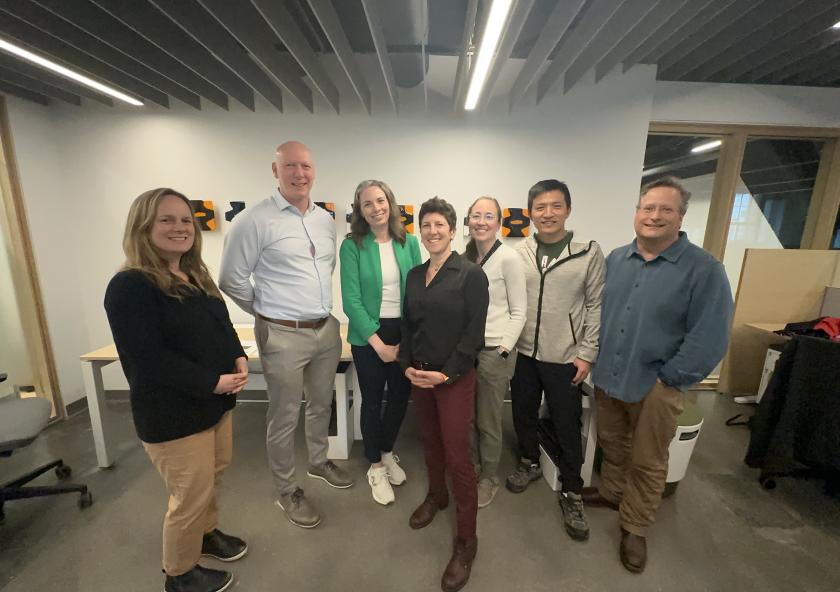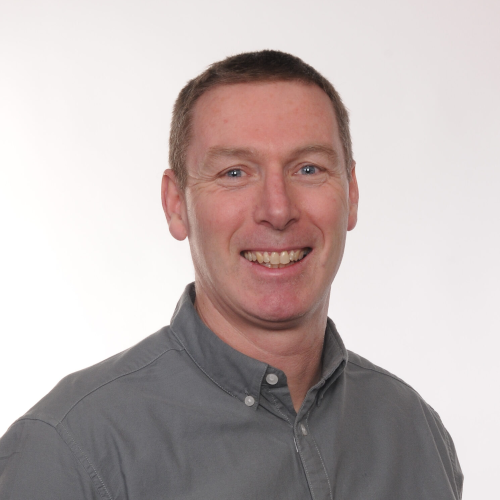
Q+A with Climate Action & Sustainability in Higher Education Program Visitor Mark Kelly

Mark Kelly is the HEA National Forum for the Enhancement of Teaching and Learning in Higher Education Policy Advisor on ESD (Secondment) and Head of Atlantic Technological University (ATU) Centre for Sustainability, and co-lead of the ATU ESD Academy
What interested you in this program?
The ‘Scaling Climate Action and Sustainability in Higher Education’ program provided an opportunity to immerse myself in the working of the MIT Office of Sustainability. I was particularly interested in how the Office of Sustainability functions from an everyday perspective, whilst also providing leadership across the university and the city. The Scales of Impact model (You, Campus, City, State, and Globe) and the Campus as a Testbed were two initiatives that I wanted to learn more about from a conceptual and implementation point of view. Additionally, MIT’s reputation for nurturing interdisciplinary and innovation was also a key area of interest. From a personal point of view, the program offered me an opportunity to step outside of an Irish and European context to observe how sustainability and climate action is framed within universities in the US.

What surprised you about your time at MIT?
The scale of things from a university perspective, from power generation to campus buildings and infrastructure and how immersed the university is within the city. The campus planning of using open and green spaces as connections between different buildings and the community was fantastic to see. I particularly liked the open classrooms and how the campus was designed to catalyze interdisciplinary serendipity. This physical scale is also translated into thinking big when viewed through the Scales of Impact model and demonstrated by MIT through its ambitious Climate Project and Climate Missions of Decarbonizing Energy and Industry; Preserving Atmosphere, Land, and Oceans; Empowering Frontline Community Action; Designing Resilient and Prosperous Cities; Enabling New Policy Approaches; and Wild Cards.
What is something you will take back from your time at MIT?
The whole experience was wonderful thanks to the kindness and generosity of Julie and the team. The key lessons I will take place with me as viewing sustainability, climate action, and the SDGs through the Scales of Impact lens; the unlimited opportunities of using the campus as a testbed; and the use of data to inform evidence-based decision-making on campus but also in communities and across the city. The time spent with the team also reinforced to me the importance of this work and how higher education institutions have a responsibility to lead on sustainability, climate action and justice.
What insights do you have for MIT practitioners or just what could MIT learn from the way you all work?
I think the work going on at a national level on Education for Sustainable Development (ESD) where higher education institutions are openly sharing their practice across every discipline and the collaborative development of Open Courses on Education for Sustainability and Embedding the SDGs across the Curriculum, could potentially provide a pathway for institutions to collaborate in Boston. The strategic focus on ESD at a national and local (within higher education institutes) level provides Ireland with an opportunity to think sector-wide when looking to embed ESD across the curriculum. There is some great work going on in this space in MIT, most notably the Climate Justice Instructional Toolkit, that could be built upon and embedded across the MIT Climate Project missions.

